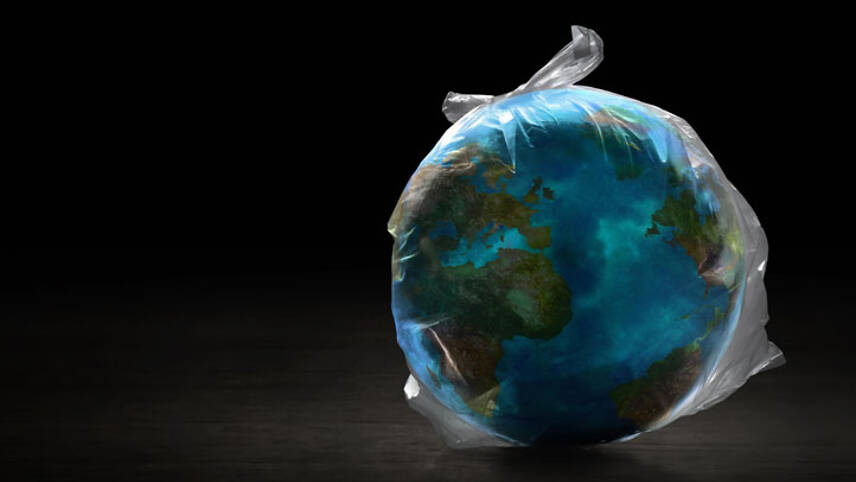This premium content is exclusive to edie Members.
To find out more about edie Membership, please click below.
If you are an existing member, login here

"The plastics treaty could create a level playing field for countries and companies alike."
This is according to a recent WWF analysis of states’ submissions to the global plastic treaty’s revised draft text.
Often referred to as the ‘Paris Agreement for plastics’, the global plastic treaty aims to reduce the absolute level of plastics production globally, with a focus on the materials that pose the most risk to the environment and public health. It will also require nations to improve waste management.
In September of last year, a first full draft of the treaty was finalised, asking nations to aim for the “prevention, progressive reduction and elimination of plastic pollution throughout the lifecycle of plastic”.
The draft was further negotiated in November at the INC-3 discussions held in Kenya, which saw a small group of nations with strong petrochemical interests stall progress by advocating for weak agreements and rowing over the specific wording on operationalising the treaty.
Today (15 April), WWF has emphasised that the fourth and penultimate round of discussions, INC-4, slated to take place next week in Ottawa, Canada, will either make or break the treaty.
WWF International’s global plastics lead Eirik Lindebjerg said: “INC-4 is make or break for this treaty and we need to gain a lot of ground in quite a short period of time.
“Therefore, governments must urgently come together on the key global measures that will have the biggest impact on plastic pollution. Anything less at this stage in the negotiations would risk the implementation of a meaningful treaty and accelerate the plastic pollution crisis.”
Key measures requiring enhanced focus include global bans on the most harmful and avoidable single-use plastics; binding, global requirements on product design and performance to ensure reduction, reuse and safe recycling for all plastic products, as well as a financial package to support the implementation of the treaty.
Nevertheless, a small group of states with large plastic manufacturing and export bases, such as China and the US, are pushing to get such rules removed from the treaty’s final text.
Approximately eight states are currently supporting the elimination of chemicals and polymers as a point of concern, while six states are opposing rules on extended producer responsibility and problematic-avoidable plastic products.
While there are a handful of voices advocating for a watering-down of the treaty, most nations remain in support of a strong agreement.
WWF has found that all the states are in agreement with the establishment of rules for reducing, reusing, refilling and recycling plastics, with 124 nations supporting a binding-obligation approach.
The plastics treaty: A level playing field
Currently, the environmental, social and economic costs of plastic throughout its life cycle are eight times higher for low- and middle-income countries (LMICs) than high-income countries.
EA Earth Action recently revealed that while plastic production at a global scale will exceed the global waste management capacity by September this year, the date will come much sooner for certain nations including Kuwait, Nigeria, Pakistan, Egypt, Iran and India.
WWF anticipates the plastics treaty creating a level playing field for countries which will distribute the burden of addressing plastic pollution more fairly amongst states by ensuring plastic production, usage, disposal and recycling decisions are more equitably addressed than they are now.
WWF International’s president Adil Najam said: “Plastic pollution most often disproportionately burdens low- and middle-income countries, with the bulk of the world’s pollution either imported to or washing up on their shores.
“But this doesn’t mean richer countries are protected from the devastation plastic waste can wreak on communities.”
The organisation notes that national and voluntary measures up until now have proven ineffective in tackling plastic pollution. Additionally, in the absence of proper regulation and enforcement, businesses often take advantage of dumping plastic waste in LMICs to avoid landfill fees and regulations.
Research has found that having global bans and requirements in place will provide states with the required authority and resources to address these challenges that are usually beyond their jurisdiction, and enable city-level plastic pollution solutions to scale.
While many consumer goods brands and retailers are advocating for a strong agreement on the treaty to effectively mitigate the plastic crisis, a minority of them have pushed back.
Public support for a single-use plastic ban
Recent Ipsos polling commissioned by WWF and the Plastic Free Foundation found that negotiators and businesses advocating for a weaker agreement are not in sync with what the public wants.
Of the 24,000+ people surveyed, who span across 32 countries, 90% of people said they would support an outright ban on certain kinds of plastics which include chemicals that pose risks to human health. And 85% said they would support a ban on single-use plastics.
Globally, eight in ten consumers believe that all plastic-free packaging in inherently better for the environment than plastic packaging.Najam added: “The universal suffering is the reason why public surveys show almost unanimous support for a global treaty with common legally-binding rules.
“The vast majority of people worldwide are sick and tired of voluntary half-measures. It’s time our leaders put into action what their constituents have been calling for.”


Please login or Register to leave a comment.